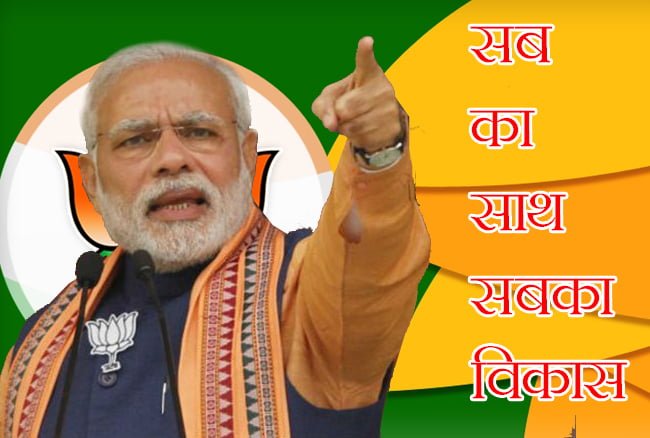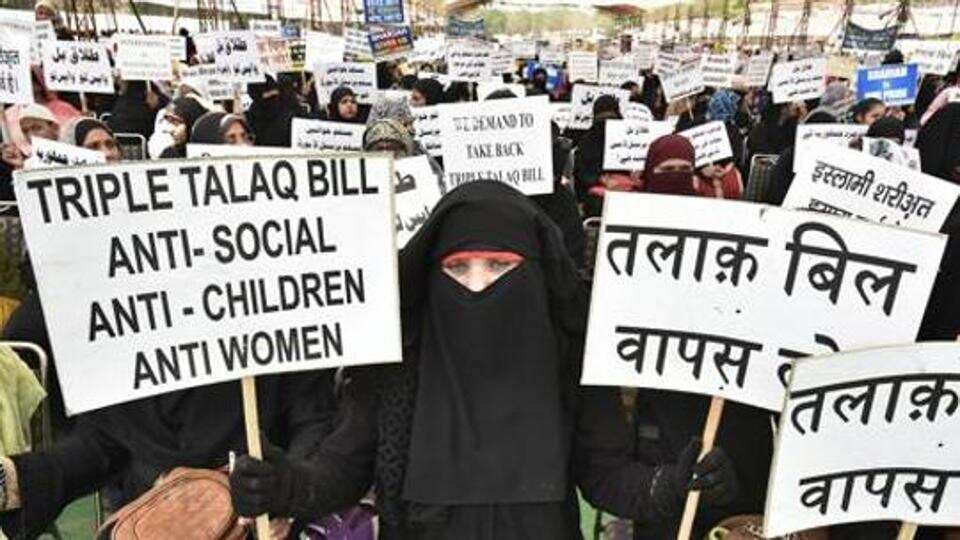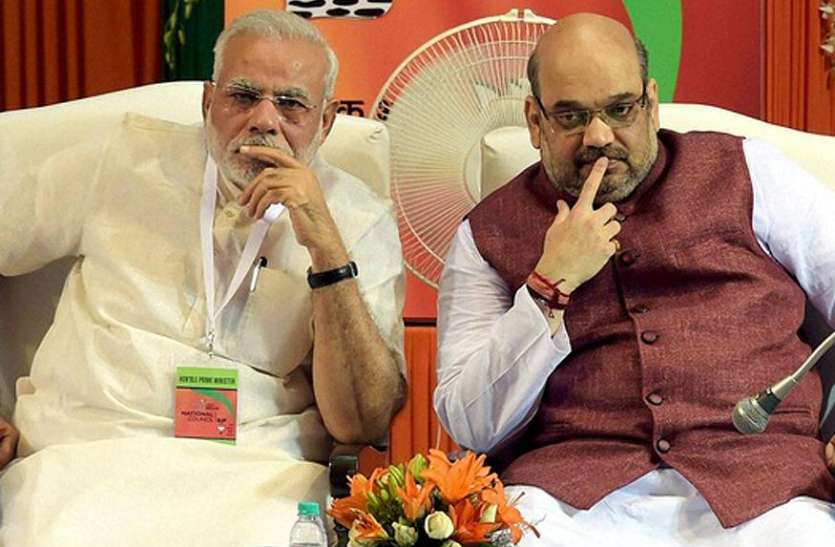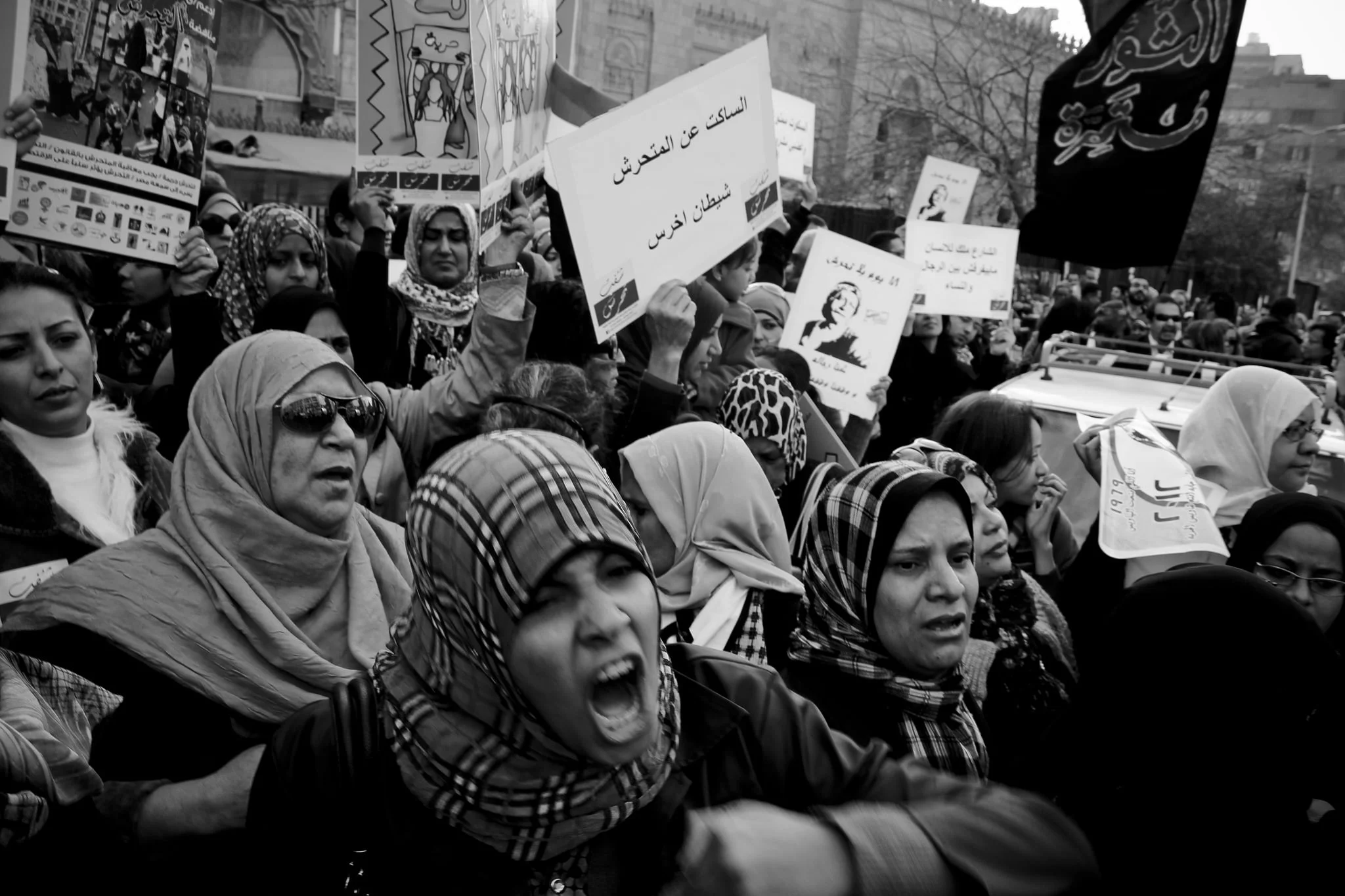In a time of increasing communal hatred, persecution of Muslims, state-sanctioned violence and complete distrust in state machinery, we still come across people who truly believe that the existing BJP government will lead India to a bright future and that we are headed for “acche din” (“the good days”). It is easy to indulge in a little intellectual masturbation and dismiss these people as ignorant bigots, “sanghis” and “bhakts”. But we must question: Where do they get all these ideas from? How do they sustain an aspiration towards a better future in the midst of all this hopelessness? Let’s go through some common arguments we hear in favour of the current regime and attempt to understand them.
1. “Demonetization was a powerful step against corruption!”
We often trace the root of all of India’s problems back to corruption, and so a big step claiming to tackle this issue is likely to instantly warm the heart of us Indians. But let’s be clear: demonetization did more harm than good. Working on the assumption that all piles of cash outside of a bank account are products of corruption, demonetization wreaked havoc on India, which is largely a cash economy.

Firstly, most people with considerable black money are unlikely to have just kept the notes away in a safe somewhere. And what about all the black money that has been converted into assets such as gold? How has the unavailability of 86% of our currency combated this?
Secondly, plenty of money that is unaccounted for can be an honest earning of a hard day’s work. As of 2018, 81% of employees in India were employed in the informal economy, a lot of which is cash-dependent. It is likely that the savings of workers in this economy were simply rendered useless because not everyone has the luxury of having documented records of their income source, or the financial literacy of having and maintaining a bank account.
This is, of course, excluding the effect of demonetization on agriculture. As prices of crops fell and lenders lacked money to lend, farmers were worst hit by this “brave” step against corruption. They were heavily indebted, had no money to purchase new seeds and fertilisers, on top of the already intense agrarian distress. Those who applaud demonetization are probably fortunate to be having salaries getting directly transferred to their bank accounts and plastic money to go back to. We have to remember that a courageous and loud step does not necessarily mean it was a good one. Bravery does not nullify the impact of an ill thought-out decision. The Deccan Herald describes the move as “one of the most arbitrary decisions ever by an elected leader in a democracy.”
Additionally, if corruption is such a concern, the BJP government should perhaps start with erasing it within itself first, no?
2. “The Swachh Bharat Abhiyan was a great initiative!”
It is indeed a feat to have constructed 9 crore toilets under the Swachh Bharat Abhiyan, but evidence shows that many of them remain too poor in quality to use. The majority of these toilets do not even have access to water. Construction of toilets does not translate into them actually being used.
Perhaps an even bigger concern is the condition of manual scavengers under this program. With the construction of crores of new toilets came the construction of even more septic tanks and sewers. This means that despite the fact that it is illegal to employ workers for the dehumanising job of cleaning septic tanks and sewer lines, the demand for their labour has only increased since the Swachh Bharat Abhiyan was initiated.
Bear in mind that the technology to replace this form of work is very much available. In fact, the machinery that could be used to replace it still needs to be manned by a person. This means that with a little bit of training a sanitation worker can transform from a manual scavenger to an operator, a job that allows more dignity and lesser health risks to the individual. Why does the BJP government not invest in this, at least out of concern for efficiency if the people themselves are too insignificant to care for (after all, they aren’t predominantly rich, upper-caste Hindus)?
Instead, in February of 2019, our PM decided to give a big middle finger to alternative options and decided it was a better idea to wash the feet of five sanitation workers and glorify their “sacrifice” for the nation. This token of “respect” was purely performative given that under the BJP, the money allocated for the Self Employment Scheme for Rehabilitation of Manual Scavengers has been declining for the most part: from Rs 448 cr (2014-15) to Rs 470 cr (2015-16), all the way down to a dismal 10 cr in 2016-17, and Rs 5 cr in the Budget for 2017-18. 110 people died cleaning sewers in 2019, the highest number since 2015.
3. “I don’t support his communal ideology, but he’s the only one who’s really dedicated to ‘vikas’ (development)!”
First, I wish for all of us to understand that our support for one aspect of this government and distaste for another does not mean that it will lose its violent tendencies and reserve the aspects we like. They both come together: which one do you prioritise?
Secondly, I want to highlight that this belief is simply not true. I urge you to read this article by Forbes, because even people who discount facts by labeling them “leftist” and “anti-national” propaganda have to believe Forbes, right? RIGHT?

At 4.5%, our GDP growth rate is at its worst in the past 5 years. Whatever happened to Modi’s promise of economic revival and the ever-so-flawless ‘Gujarat Model’. On the contrary, in October 2019, the unemployment rate reached an all-time high at 8.50%, and by all-time I mean the highest in 45 years. Modi’s rallies for the 2014 elections promised enhanced skills of the youth and greater career opportunities, but here we are, faced with a job crisis, recognised as the “graveyard of their [the youth’s] dreams”.
Education, an important part of development, has been under an ideological attack ever since this government has been in power, starting from changing information in textbooks to blatant, unapologetic violence on university campuses, which the police is more than willing to assist in. Let’s not kid ourselves by saying this is not directly the government’s doing. It has the power to put an end to these injustices but it chooses to let the BJP ministers indulge in terrifying hate speech, influencing masses to get violent with impunity while washing its hands off any responsibility. Do not forget that it is best friends with the Rashtriya Swayamsevak Sangh (RSS), which literally founded the Hindutva ideology back in 1925.
Why do we find it difficult to dissociate Modi from the idea of rapid development?
Simple, it’s because he spends large amounts of money into making us believe that he is the symbol of ‘vikas’. As of 2018 alone, the BJP government spent Rs 4343.26 cr only on advertising and publicity. Money that could have been used to facilitate development and address the vast spectrum of economic and social issues that plague our country is instead used to cultivate a narrative of development that does not have too strong a grounding in reality. “Sabka saath, sabka vikas” (“everyone’s support, everyone’s development”) has really not manifested to the extent it was expected to.
4. “The BJP government really cares for Indian women! Why else would it criminalise Triple Talaq and launch the ‘Beti Bachao, Beti Padhao’ program?”
While the abolishment of Triple Talaq might appear to be progressive on the surface level, it is crucial that we view any move on the government’s part in light of its Hindutva ideology. While coming with possible upsides, the abolishment of Triple Talaq quite possibly had to do with demonizing Muslims (as Hindutva frequently does) than with an actual concern for women’s welfare.
Do we really believe that the same people screaming vile things about the women of Shaheen Bagh and threatening to shoot them care about Muslim women? The same people actively persecuting their community and passing Acts to rob them of their citizenship status? The same people under whom violence against Muslims has increased dramatically?

As of 2011, it was found that the majority of the women abandoned by their husbands were in fact Hindu. Why is there no step to remedy this, but quick response in criminalising Triple Talaq? Husbands abandoning their wives is not a religion-specific issue. Just because Hindu husbands do not say the word “divorce” thrice does not mean they are not deserting their wife. If a genuine concern for Indian women existed, this important detail would have been recognised and steps would have been taken accordingly. This is the same rationale behind the Citizenship Amendment Law: demonising Muslims by “saving” persecuted minorities in Muslim-majority countries while ignoring the conditions countless Muslims live in under regimes that actively attack them (such as the Rohingya Muslims in Burma and certain Muslim sects within Muslim-majority nations as well).
Similar to the ‘vikas’ myth, most of the funds of the ‘Beti Bachao, Beti Padhao’ program are also dedicated to publicity, with less than 25% given to states and districts for actual implementation.
Unsurprisingly, its success has been non-existent for the most part, with child sex ratio worsening in most of India (balancing the child sex ratio was an important objective of the scheme). According to economist Mitali Nikore, the expenditure is “highly skewed towards just one pillar of the scheme (publicity)”, with only 5% employed in education and health interventions, and another 5% in training and capacity building. India also ranked 112th out of 153 countries in the Global Gender Gap Report 2020, ranking poorly on indicators like economic participation, education attainment, and health and survival.
Also read: 5 Things The BJP Government Want To Shift Your Focus From
5. “But the newspapers said…”
Speaking of poor ranking, India also stood at an alarmingly bad position of 140 out of 180 countries in the World Press Freedom Index as of 2019. The state has not shied away from unabashedly targeting journalists for speaking their truth. Because guess what? The truth is seldom reflecting well on the government. Last year alone, at least 6 journalists were murdered under suspicious circumstances. Most of us are aware of the assassination of Gauri Lankesh, who was outspoken in her views against the state, in 2017.

A non-profit organisation called Reporters Without Borders found that many journalists speaking against Hindutva had to face entire organised hate campaigns on social media, orchestrated undoubtedly by hard-core supporters of BJP. They were especially unforgiving towards women during the #MeToo movement and towards those reporting on sensitive issues like Kashmir.
There is no reason to uncritically believe the news and the papers: there is hardly any space for honesty at a time when journalists and media platforms are under constant threat of violence. Those who publish critical news do so at great risk, and we owe it to them to at least consider a different perspective. We might find it hard to believe, after all, how can a government get away with lying for so long? Well, it can. With power comes considerable impunity which it is not afraid of abusing. Dishonest media has even earned a nickname for itself: Modia. There is an entire website dedicated to debunking the “facts” in his speech. There is enough reason to question, to educate ourselves through multiple sources. Nobody criticises a government, knowing full well what it could cost them, for fun.
In a better world, the fearless violation of human rights, the sheer degree of violence, and the devastating similarity to 2002 Gujarat would have been sufficient for us to surrender our support for a fiercely fascist government. But sadly, this is not the case. Why is the support so unwavering, so difficult to shake off? It is because of how the publicity has successfully cultivated a cult of personality around Modi. The cult of personality is the perception that an individual (usually political leaders) deserves uncritical flattery and must be admired in a way that resembles an almost god-like devotion from the masses.
Also read: Low Wages, No Rights: BJP’s Amendments Are A Disaster For Labour
This cult is developed intentionally through manipulating mass media and using relentless propaganda. Have we ever called a Congress-run government the “Manmohan Singh government”? No, because it just sounds wrong. But how accustomed are we to calling the BJP government “Modi government”? The cult of personality has been associated almost always with totalitarian regimes like those of Mao Zedong, Adolf Hitler, Kim Jong Il, etc. If we are not terrified out of our support for this government now, I shudder to think what atrocities have to unfold for the realisation to hit us.
Will it hit us before it’s too late?
Featured Image Source: Patrika





Regarding Triple Talaq, a Constitution Bench had already declared the practice of instantaneous Triple Talaq unconstitutional in 2017. Which means even if it was invoked by the husband, the words had no meaning and there was no need to bring in a bill separately. I think, the government is trying to take credit here for nothing. In fact, it appears that by making it a criminal offence, which includes husband’s imprisonment, it exacerbates the problem for a woman, especially when she is completely financially dependent on her husband. This is my understanding of the subject, if correct, please see if can be added to the article.